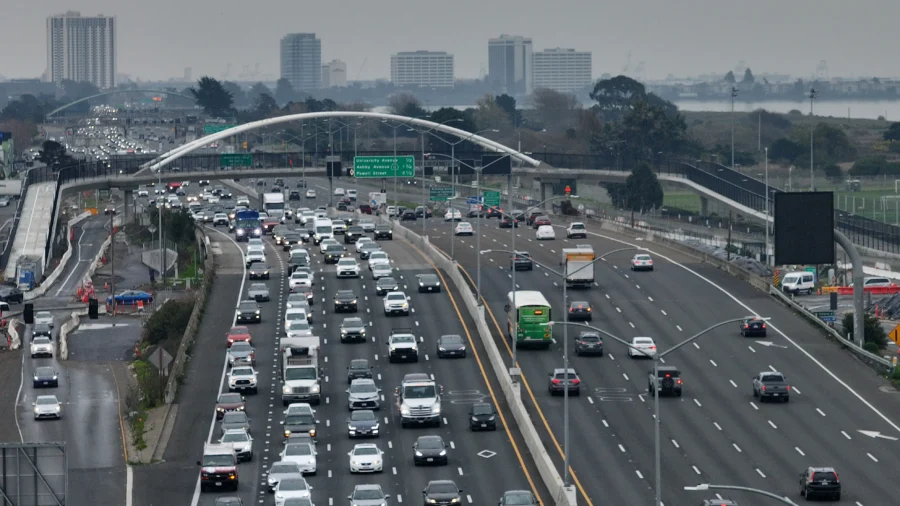The Biden administration has granted California the authority to phase out the sales of new gasoline-powered cars, a move that President-elect Donald Trump will likely attempt to reverse.
On Wednesday, the Environmental Protection Agency (EPA) announced its decision to grant two requests from the state under the Clean Air Act.
The EPA granted a Clean Air Act waiver, allowing the state to begin full implementation of its regulation requiring all new car sales be zero-emission by 2035.
The EPA also approved a Clean Air Act waiver for the state’s heavy-duty omnibus regulation, which reduces nitrogen oxide (NOx) emissions from heavy-duty trucks.
It also permitted California to set the strictest mandate in the nation that requires all new car sales be zero-emission by 2035. This is tighter than a federal rule adopted this year that limits emissions standards and does not mandate sales of electric vehicles.
Under the Clean Air Act, California has the ability to adopt emissions requirements independent of EPA’s regulations in order to meet the state’s “significant air quality challenges,” according to the EPA.
To do this, state officials had to seek waivers from the agency.
The EPA said in a statement that it reviewed the information provided by the state, including comments submitted by the public, and found that opponents of the waiver did not meet its burden to show how either program is inconsistent with the federal Clean Air Act.
“California has longstanding authority to request waivers from EPA to protect its residents from dangerous air pollution coming from mobile sources like cars and trucks,” EPA Administrator Michael S. Regan said in a statement. “Today’s actions follow through on EPA’s commitment to partner with states to reduce emissions and act on the threat of climate change.”
California Gov. Gavin Newsom said the EPA’s decision shows a vote of confidence in the state’s efforts to lead the nation to improve air quality and cut pollution.
“With more makes and models available than ever before, millions of Californians have already made the switch to clean cars,” Newsom said in a statement. “Automakers and manufacturers have made it clear they intend to stick with California and consumers as we move toward clean cars that save people money.”
Trump’s Stance
The EPA’s latest move sets the stage for a battle between Newsom and the incoming Trump administration.
Trump’s plans to roll back Biden-era EV policies are already in the works, according to Reuters. His plan would redirect the money allocated for building charging stations and making EVs more affordable to national defense priorities.
“When he takes office, President Trump will support the auto industry, allowing space for both gas-powered cars and electric vehicles,” Karoline Leavitt, spokeswoman of the Trump transition team, told Reuters in a statement.
The EPA’s decision is also important to more than a dozen other states that follow California’s nation-leading standards on vehicle emissions.
The Alliance for Automotive Innovation, a lobbying group representing most new vehicle manufacturers in the U.S., said in a statement that the EPA’s decision was expected, and it believes Trump will challenge it in 2025.
“We’ve said the country should have a single, national standard to reduce carbon in transportation, but the question about the general authority of California to establish a vehicle emissions program – and for other states to follow that program – is ultimately something for policymakers and the courts to sort out,” according to John Bozzella, president and CEO, Alliance for Automotive Innovation.
The lobbying group has already asked Trump to ease emissions regulations and keep federal tax incentives that keep EVs affordable.
In 2019, then-President Trump rescinded California’s authority on emissions, a move that was later reversed by Biden’s EPA which restored the state’s authority three years later.

